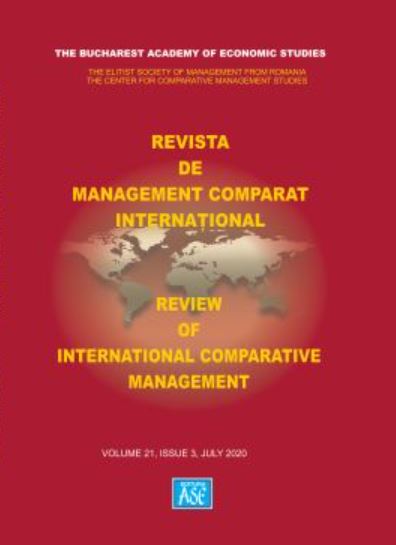Institutional Governance of the Francophonie after 50 Years of Existence, between Geopolitical Interest and the Challenges of Economic Development/Strategy
Institutional Governance of the Francophonie after 50 Years of Existence, between Geopolitical Interest and the Challenges of Economic Development/Strategy
Author(s): Aurelia GrosuSubject(s): Business Economy / Management, Management and complex organizations, Geopolitics
Published by: EDITURA ASE
Keywords: Francophonie; Francophone Economic Space; Economic Strategy; Multilateralism; Institutional Governance; International Organization of Francophonie; Institutional Francophonie;
Summary/Abstract: Economy is a priority for the International Organization of Francophonie (OIF), whose objective is to build, together with its member states and governments, associate members and observers, a new model of economic growth in the Francophone space adjusted to the current context of globalization. The actions currently carried out by OIF in the economic sector are based on the priorities of the Economic Strategy adopted by the heads of Francophone states and governments at the Summit of the Francophonie held in Dakar in 2014, even though the organization is built around the affiliation to the French language and the promotion of the diversity of Francophone cultures. By adopting an economic strategy, the Francophone states and governments committed to defend the joint interests of the Francophone space and impose a common reform vision, particularly in the field of trade, access to financing sources and for a more efficient valorisation of innovation and creativity in the service of sustainable development. From this perspective, OIF supports entrepreneurship as a priority, an effort considered essential for a truly inclusive and long-lasting growth, giving particular attention to economic initiatives carried out by young people and women, as part of the gender equality and youth policy. The main objective is to support and strengthen the business environment from an institutional, financial and regulatory perspective. Moreover, the organization has the capacity to gather together expert networks, to facilitate the exchange of expertise, best practices and prediction analyses in the entrepreneurial field, being a truly supportive relay of contacts between professional networks. By its uniqueness and specificity in the current multilateral landscape, OIF is characterized by its capacity to act simultaneously on three essential levels: 1. states and governments; 2. national institutions and civil society; 3. non-governmental organizations and the private sector. The added value of OIF is to take on the role of a facilitator in relation to the national Francophone administrations, acting for the identification and implementation of innovative economic models that generate an inclusive sustainable development. On the background of an international reflection, started at the end of last year, in the context of its 50-year anniversary, regarding OIF directions and governance, this paper revels the main challenges and trends of economic development in the Francophone countries, in a period marked by the disturbance of geopolitical balances, the exacerbation of certain outbreaks of security and economic crises. As part of this effort of evaluation of the institutional governance of the Francophonie and OIF’s place on the current multilateralism scene, answers are sought to a series of questions, that concern the academic and research environment, as well as the national administrations that invest politically and financially in the Francophonie cause: Do the current priorities of the Institutional Francophonie and the current structure of the organization meet the economic development needs and expectations of the Francophone populations that they represent? What would be the added value of the Francophonie in terms of sustainable development, the strengthening of the Francophone economic space, the support for education and Francophone culture or in the field of settling international conflicts? What would be the priority intervention axes?
Journal: Revista de Management Comparat Internațional
- Issue Year: 21/2020
- Issue No: 3
- Page Range: 298-318
- Page Count: 21
- Language: English

